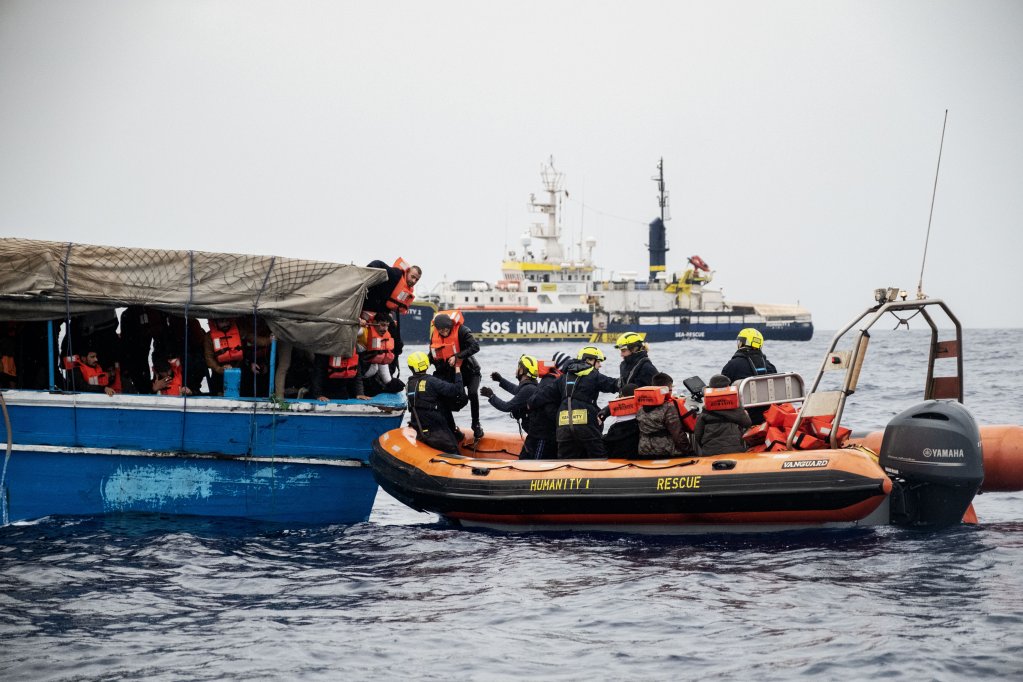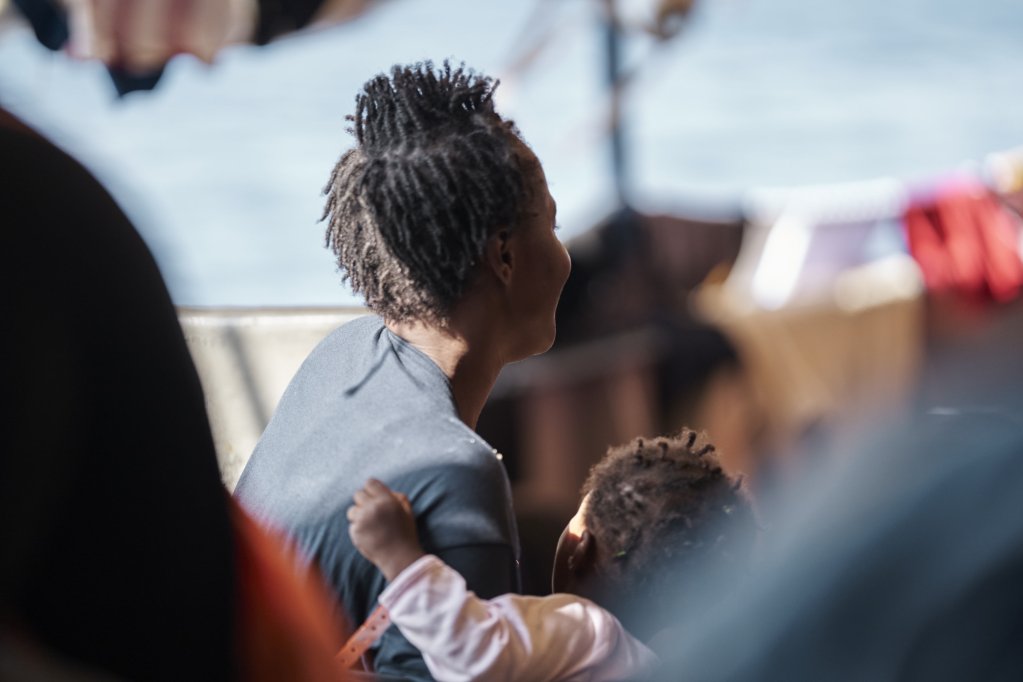A group of sea rescue organizations are criticizing the Italy-Albania deal, under which Italy sends asylum seekers to Albania to have their claims for asylum in Italy processed there. The NGOs say the deal "violates the code of medical ethics and human rights and puts the physical and psychological health of migrants at risk."
A group of 14 sea rescue organizations, including Mediterranea Saving Humans, Emergency, Doctors without Borders (MSF), and SOS Humanity, as well as SOS Mediterranee, Sea-Watch, Sea-Eye and Mission Lifeline, signed an open letter on Friday (November 15), critiquing the basis of the Italy-Albania deal to detain and process asylum seekers in Albania.
The signatories have appealed to operators of the deal as well as health professionals who might be called upon to work in Albania, "not to be complicit in the agreement and its violations."
The NGOs, who all work with migrants on the Central Mediterranean route, say that many of the migrants rescued and seen by their own medical and care teams, "have suffered physical, psychological or sexual violence including torture and rape on their journey to Europe."
The group says that because many of the migrants crossing the Mediterranean have been either direct victims or witnesses to human rights abuses -- either in their country of origin, during their transit towards Europe or during detention in Tunisia or Libya -- many of them "are at severe risk of developing mental health problems like post-traumatic stress disorder."
Read AlsoMigrants sent back to Italy from Albania begin asylum claims
Inadequate medical facilities, no privacy
The letter further explains that the procedures contained within the Italy-Albania deal, while migrants are on board Italian military or patrol boats headed towards Albania, do not provide the correct conditions to carry out "an adequate assessment of a person’s state of health." In fact, they add, "there are no medical facilities, no private confidential screening spaces, and no equipment to diagnose or treat critical medical conditions and pathologies, acute or chronic."
In a longer Italian version of the press release, the group explains that the procedures contained within the protocol were not fully outlined, and so only became clear once the first migrants were sent to Albania. The group complains that migrants picked up on the Italian naval or coast guard ships are subjected to three "vulnerability screenings" to assess whether they can be safely sent to Albania or not.

The deal stipulates that Italy can only send male, non-vulnerable migrants to Albania who have been rescued in international waters by the Italian authorities. The first screening is carried out on board the coast guard vessel and is carried out by members of the CISOM (Italian Relief Corps of the Order of Malta), who are on board the vessels to carry out this operation.
Anyone categorized as "vulnerable" after this first screening is disembarked on Lampedusa. The remaining migrants are then transported to the Italian naval vessel Libra, which operates as a kind of "hub" in international waters.
Screenings and long voyage risks retraumatization and 'irreversible damage'
The second screening takes place on board the Libra vessel, carried out by medical officers working for the UN Migration Agency IOM. Only adult males who are deemed to be "healthy" and from a list of so-called "safe countries" can then be sent on towards Albania.
Those who fail the second screening are taken to Lampedusa, where they are allowed to disembark and continue their asylum process in Italy. Those deemed eligible for the Albania process then embark on a two-day voyage to Albania on board Libra, where they are subjected to a third screening.
This final screening is carried out by officials from the Italian Maritime, Air, and Border Health Authority (USMAF). In some cases, a person may be found to be vulnerable, even though they passed the first two screenings. They are then taken back to Italy on board the ship. This has already happened twice with both groups of migrants taken to Albania.
The organizations state that the journey time, inadequate facilities on board, and detention in Albania could serve to worsen any conditions of vulnerability not picked up in the screenings, and either retraumatize a person or even lead to "irreversible damage" like suicide attempts.
Finally, states the letter, the World Health Organization (WHO), has declared that places of administrative detention, like the facilities in Albania, "are a risk factor for mental and physical health, in particular due to the possible spread of infectious diseases and the low standards of care and treatment even of non-communicable diseases."
Read AlsoIs Italy's model for offshoring migrants doomed to fail?

Medical selection criteria 'unacceptable'
In conclusion, the organizations say that the Italian "practice of medial and health 'selection' as a criterion for deportation to Albania" is "unacceptable." They say that health workers should not be involved in this kind of "discriminating and degrading system," as their profession "must be exercised with respect for the Code of Ethics and human rights."
The signatories criticize Italian institutions involved in this practice, "such as the Ministry of Health" as well as the UN Migration Agency IOM, the CISOM, and the USMAF, which they say are becoming "complicit in this practice in violation of human rights and the Code of Medical Deontology."
They have called upon Italian health federations, including the National Federation of the Orders of Surgeons and Dentists, the National Federation of the Orders of the Nursing Professions, and the Orders of Psychologists, as well as the scientific societies in the medical field "and all the relevant medical and health institutions to formally and publicly distance themselves from these practices."
Read AlsoItaly: One migrant returned from Albania, others expected to return
Most of those rescued should be considered vulnerable, believe NGOs
The group underlines that the definition of vulnerable individuals, as outlined in a 2013 European directive, includes "minors, unaccompanied minors, disabled people, old people, pregnant women, single parents with children, victims of human trafficking, people with serious illnesses, people with severe mental disturbances, people who have been subjected to torture, rape or other serious forms of violence, either psychological, physical or sexual, and victims of female genital mutilation."
Rescue organizations believe that many of those crossing the Mediterranean fall into one or more of these categories. They point out that Italy's Ministry of Health declared in 2017 that "all those who cross the Mediterranean should be considered as potentially vulnerable, because fleeing your country is in itself a traumatic experience."
They add that time and the reception process are also hugely important in allowing people to settle and feel safe enough to reveal any vulnerabilities they might have. These people need to be monitored over a longer period and have access to trained professionals and cultural mediators to be able to talk about what they might have gone through, the group points out.
